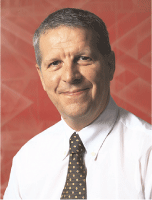Active flowline-heating technologies as alternative flow-assurance management techniques
Peter BakerS2V Consulting.
The APPEA Journal 54(2) 523-523 https://doi.org/10.1071/AJ13096
Published: 2014
Abstract
Most of the easy subsea oil and gas reserves have been discovered and are being developed. In the search for future reserves, subsea oil and gas developments are moving into deeper and colder water, often with longer tiebacks. Conventional techniques using chemicals may prove unviable to deliver technically and economically into these environments due to the volumes required and the supply-chain logistics involved. Other techniques such as depressurisation can be difficult to operate successfully for long flowlines in colder environments. This has driven the need for a new generation of economical, efficient and easier-to-operate flow-assurance management techniques. To address these more challenging environments, a number of alternative flow-assurance management techniques have been developed and are now available to operators. One of these is known generically as Active Flowline Heating (AFH). Rather than using passive insulation, AFH technologies maintain production by heating the flowline wall and transferring the heat to the contents to keep them above hydrate or wax formation temperatures. This extended abstract looks at the status of a number of AFH technologies:
Open or wet direct electrical heating (open DEH)
Closed or dry direct electrical heating (closed DEH)
Electrically trace heated pipe in pipe (ETH PIP)
Integrated production bundles (IPBs)
Rigid pipe bundles
In the right circumstances, these technologies can provide economical, easy-to-operate and reliable alternative flow-assurance management techniques. This presentation also addresses potential applications for these technologies in subsea oil and gas developments of the future.

Peter is the manager for Emerging Technologies within S2V Consulting, a Perth-based consultancy. He has over 30 years’ experience in subsea engineering and he has a BSc in mechanical engineering, is a Chartered Engineer and Fellow of the IMechE. Peter is keen to see a greater awareness of new and emerging technologies and their incorporation into developments as they move further offshore and into deeper waters. He has been involved with various active flowline-heating technologies for seven years and believes, given the right circumstances, that they offer an affordable and credible alternative to other flow assurance technologies. Peter’s paper briefly addresses the most commonly used flowline-heating technologies. |


